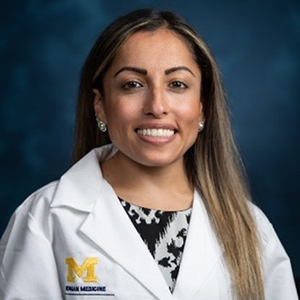Charting My Path: From Student to Specialist

As my final fellowship draws to a close, I can't help but reflect on the path that led me to where I am today. From medical school to residency and fellowship, sprinkled with chief years and a year of advanced heart failure and transplant fellowship, it has been a long and fulfilling road of challenges, success, mentorship, research and strong clinical training.
Education
Much like many of my colleagues, I was eager to step out of the classroom and practice concepts learned in school as a medical student and trainee. All of us wished for a residency program that would cater to our future goals and provide high-quality training. This high-stake process spanned many months starting with prepping of the ERAS application, obtaining letters of recommendation and taking board exams – all so that our fate could align with the match process that would dictate our future. I still remember match day; eagerly awaiting results next to friends and family and opening that envelope when the clock struck noon. I also recall explaining this process to nonmedical folks – it's a similar concept to the sorting hat placing students into their rightful Hogwarts house.
Mentorship
I had the privilege of being surrounded by wonderful physicians that I became close with since residency. They were the epitome of who I wanted to be. They helped me in each stage of my career, offered perspectives at difficult steps and allowed me to struggle so I could thrive on my own. I appreciated the help in setting my professional goals, learning what to seek, defining trajectory and developing strategies to succeed not only clinically and through research but also on a personal level. Regardless of distance and institutions, I urge all trainees to explore and establish these relationships with mentors.
Research
I am fond of research in helping answer questions that arise while caring for patients, akin to many studies that have defined medicine. I viewed this as my path to learn and understand the practice, investigate disease processes, risk factors, treatments and more. I delved into basic science and largely clinically driven projects. My goal moving forward is to develop this part of my career while learning about biostatistics and clinical trial design. The opportunities seem endless with required academic efforts to improve cardiovascular health care through research and innovation.
Friendships
Throughout each aspect of training, I became accustomed to living life in increments. Within those time periods came colleagues and friends with shared work and personal experiences. As an only child with my parents and cousins all around the world, my school and work friends quickly became my family. I have been fortunate to form these friendships that have proven to be lifelong. Seeing each other through the circle of life connected us. From speaking at one friend's wedding to attending another's grandparent's funeral, this network became strong through thick and thin. Furthermore, numerous staff at the hospital and clinics including nurses, medical assistants and coordinators became a part of my path and added tremendously to my cherished experiences.
This journey has been one filled with gratitude and humility – one that truly makes me excited for the continuous pursuit of knowledge. I am thankful to mentors and colleagues that have made me a better person and physician. I hope to give back to my patients, community and this field as much as they have allowed me to grow and learn. As I write this, I think back to my high school graduation and remember the band Green Day who so eloquently sang: this path is "something unpredictable but in the end, it's right." I can confidently say that I had the time of my life.

This article was written by Lindsey Aurora, MD, Advanced Heart Failure & Transplant Fellow at University of Michigan. Twitter: @LAuroraMD
This content was developed independently from the content developed for ACC.org. This content was not reviewed by the American College of Cardiology (ACC) for medical accuracy and the content is provided on an "as is" basis. Inclusion on ACC.org does not constitute a guarantee or endorsement by the ACC and ACC makes no warranty that the content is accurate, complete or error-free. The content is not a substitute for personalized medical advice and is not intended to be used as the sole basis for making individualized medical or health-related decisions. Statements or opinions expressed in this content reflect the views of the authors and do not reflect the official policy of ACC.

